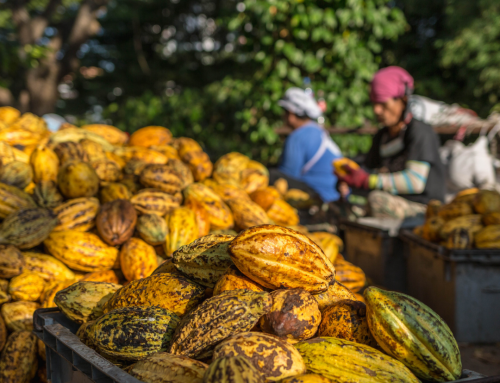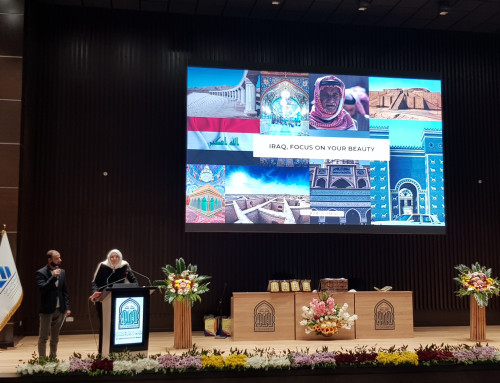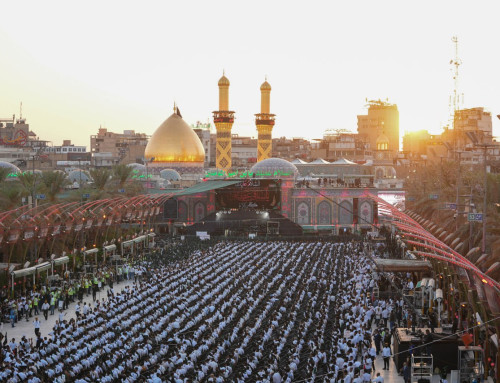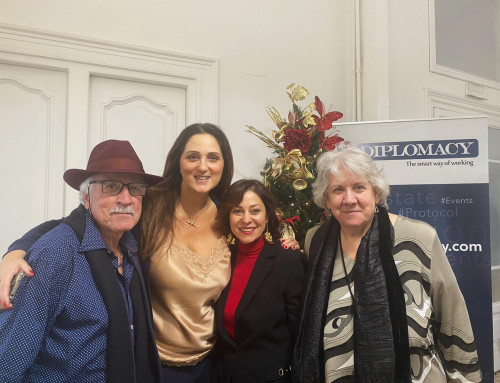Rome, 15th December 2016: HANJI. Korean Paper for Restoration
The Central Institute for the Restoration and Conservation of the Archive and Book Heritage (ICRCPLA) has organized a Ceremony on December 15th for Handing on the Certificate of Validation of two types of Hanji papers (Uiryeong Shinhyeonse Traditional Hanji 1 and Uireyeong Shinhyeonse Traditional Hanji 2) used for the restoration of archives and books.
The scientific laboratories of ICRCPAL have already analyzed different types of papers (Uireyeong Hanji) kindly provided by the Embassy of the Republic of Korea upon signature of the Memorandum of Understanding on 29/07/2016 (ICRCPAL Protocol n°1324 cl 37.04.07/21).
A report on the analyses of the two types of papers (Uiryeong Shinhyeonse Traditional Hanji 1 and Uireyeong Shinhyeonse Traditional Hanji 2) has been delivered during a bilateral meeting.
The two types of Hanji papers have been carefully chemically, physically and technologically analyzed and have been tested for resistance to biological attacks. All tests have been carried out before and after artificially ageing the samples, showing a good quality of the papers.
Hanji papers have also been tested by the Restoration Laboratory and then used for important documents, namely:
- Chartula by Saint Francis (1224) conserved in the lower Church of the Basilica of Saint Francis in Assisi, which was donated by the Saint to the Friar Leone, who was his secretary and confessor;
- Codex Purpureus Rossanensis (VI century) the Gospel conserved in the Diocesan Museum of Rossano Calabro. The document was declared UNESCO world heritage in 2015 and included among the 47 new documents of the World Memory Register;
- Armorial of the Historical Archive of the Municipality of Cagliari (XVI – XVII century);
- Musical volume n°243 of the Casanatese Library of Rome (1724).
The validation is a new contribution increasing the number of types of high-quality papers that may be used for restoration of the national and international Archive and Book Heritage.
It is an important step forward in the fruitful collaboration between Italy and the Republic of Korea.
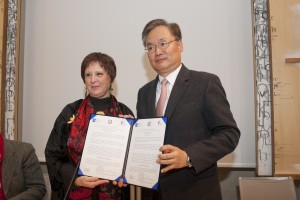 Rome, 15th December 2016: the Ceremony of the Certificate of Validation of Hanji paper used for the restoration of ancient archives and books was held at the headquarter of ICRCPAL in Via Milano.
Rome, 15th December 2016: the Ceremony of the Certificate of Validation of Hanji paper used for the restoration of ancient archives and books was held at the headquarter of ICRCPAL in Via Milano.
